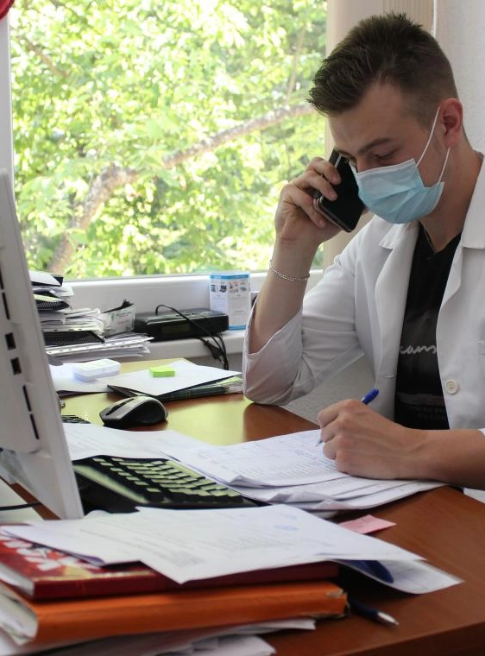Pandemics, climate change, and growing inequalities pose increasing threats to our health. As these challenges know no borders, transnational collaboration is needed to address them effectively.

Public spending on health relative to GDP in the Western Balkans is lower than the EU average. There are also challenges relating to health inequalities and access to healthcare.
To tackle these challenges and help the region align with EU standards in the field of healthcare, the EU is behind many policies and initiatives that aim to protect and improve people’s health.
Despite progress in recent years, strong gaps in health care and outcomes between the EU and the Western Balkans persist. The COVID-19 pandemic has exacerbated pre-existing health, social and economic vulnerabilities and longstanding deficits in access and coverage. Challenges include:


The EU’s policies and actions on health aim to protect and improve the health of citizens, and modernise health infrastructure and health systems. Disease prevention and response are a major focus. EU health actions and legislation covers a myriad of issues from patients’ rights in cross-border healthcare to pharmaceuticals, cancer prevention to promoting healthy lifestyles, and much more.
As candidate countries and potential candidates for EU membership, the EU advises the Western Balkan partners on EU health policy and evaluates their progress towards EU standards and policies. Over many years, the EU has also provided substantial funding and investment to strengthen public health systems and to protect against health threats.
This has helped to equip hospitals, laboratories, ambulances as well as build and reconstruct hospitals, and establish cancer screening programmes. The EU has been instrumental in providing emergency assistance in the fight against COVID-19. The bloc mobilised over €3.3 billion with the European Investment Bank to help the region to tackle the pandemic and support recovery.
But there is still some way to go. The EU Economic and Investment Plan for the Western Balkans (EIP) sets the framework for moving forward. As candidate countries or potential candidates all of the Western Balkans are also eligible to join the EU Health Programme.
Support centres on:
Modernising health systems – Continued support for health systems reform, strengthened health insurance and the resilience of public health systems, also in the light of lessons learnt from the tackling of the COVID-19 pandemic. The goal is to reduce costs and ensure all citizens have access to better treatment.
Regional cooperation – Reinforcing regional cooperation to tackle cross-border threats to health security and continued support to strengthen the Western Balkans public health systems preparedness and resilience. This includes increasing regional partnerships on health sector reforms and service delivery to build quality services for citizens.
Implementing the EU ‘acquis’ – Ongoing support to implement EU rules and standards on serious threats to health, in particular communicable disease prevention and control. This includes strengthening surveillance, preparedness, and microbiology laboratory system capacities supporting public health.
Please wait while your video is being uploaded...
Don't close this window!